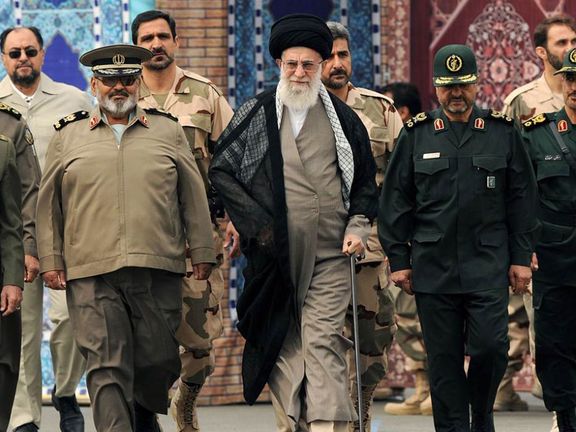Tehran analyst foresees regional dynamics shifting in Iran's favor

While many analysts agree that Iran finds itself in a weakened position, a conservative commentator inside Iran claims that the unstable situation might shift in Tehran's favour.

While many analysts agree that Iran finds itself in a weakened position, a conservative commentator inside Iran claims that the unstable situation might shift in Tehran's favour.
Former politician Abolfazl Hassanbeigi, who is permitted to express his views in Iran's domestic media, also cautioned the country's officials that Iran is likely to face two challenging years ahead.
In the interview with the conservative Nameh News site, Hassanbeigi suggested that with proper management, the situation could improve -- ultimately bringing the region in line with Iran’s interests.
In its analysis, Nameh News noted that recent developments in the region have led many to believe that Tehran's influence has been weakened.
The diminishing influence of Hamas and Hezbollah, coupled with the fall of Assad in Syria, and the rise of Joseph Aoun—viewed as a candidate favored by both the US and Saudi Arabia—as Lebanon's president, has led many analysts to conclude that the dominance of Iranian-backed forces in the region might be drawing to a close.
Several Iranian observers, including imprisoned government critic Mostafa Tajzadeh, have argued that the fall of Assad, along with Israeli strikes on Hezbollah and Hamas, signals the collapse of what Iran refers to as the "axis of resistance," a term Tehran uses to describe its network of allies and proxies in the region. These observers view this as a strategic defeat for the Islamic Republic, attributing Iran’s growing isolation and economic difficulties to Supreme Leader Khamenei’s commitment to the "axis."

Meanwhile, Iran's ambassador to Lebanon, Mojtaba Amani, said last week that the election of Aoun, who has not been Hezbollah's candidate, does not represent a defeat for Iran.
Other reports suggest that the Houthis in Yemen remain the sole remnants of the so-called axis of resistance.
Nameh News dismissed the idea of the "axis of resistance" ending as a delusional, suggesting that over time, the prevailing perception might shift towards viewing the region as increasingly aligned with the US.
However, the outlet also noted that some analysts believe the "axis" has experienced similar fluctuations in the past but has ultimately been revitalized, continuing to influence regional developments.
The website also pointed out that "none of the two views reflect the whole truth. In fact, both of them reflect what the analysts like to happen. West Asia has always been giving birth to new developments that disrupted previous equilibriums. However, the main question is that where will Iran be standing and what role Tehran is likely to play in the region."
Hassanbeigi told Nameh News that Iran's regional strength depends on resolving its internal disputes, asserting that the country is powerful enough to deter opposition if united.
He criticized radicals in Iran's political landscape, particularly in the parliament, for undermining the presidential administration through psychological warfare and efforts to tarnish its image.
"The radicals think of themselves as a new political force and that they can do anything they want even if their behavior harms the country's national interests," Hassanbeigi argued.
Addressing tensions with the US, Hassanbeigi remarked that despite Netanyahu's efforts, Washington does not appear to view a war with Iran as being in its best interest.
He acknowledged the challenges ahead, stating, "We face a couple of difficult years, but if we navigate this period effectively, the regional dynamics will shift."
He claimed that American policies often create adversaries wherever they intervene, as their excessive demands alienate others in the region.